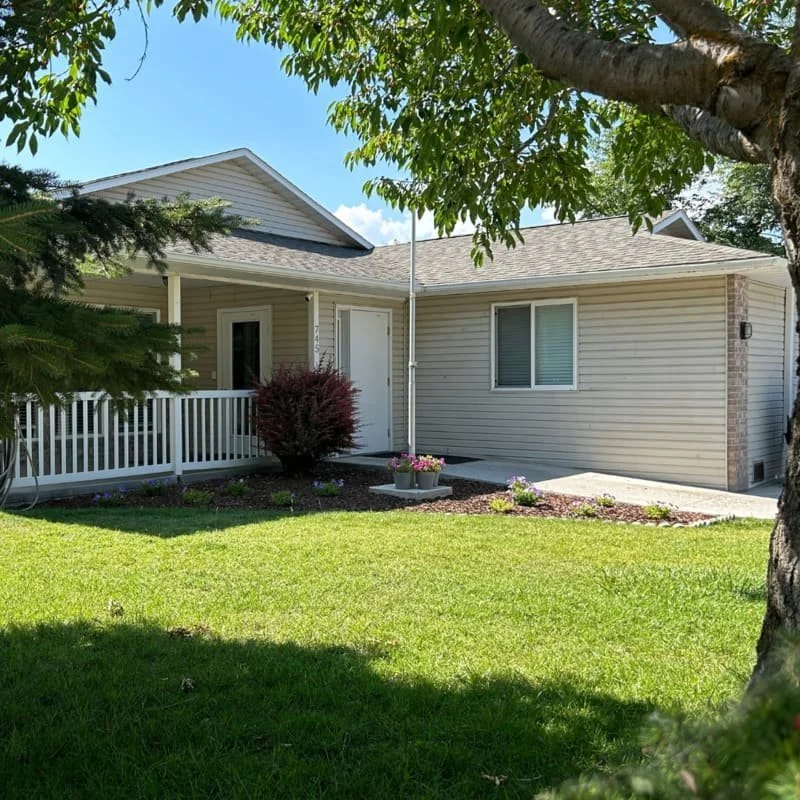Our home lives have a big influence on our well-being and mental health. In the early stages of addiction recovery, it isn’t uncommon for those starting their recovery journey to discover their current living environment is creating a roadblock. They may find themselves surrounded by distractions, stressors, and temptations that can trigger a relapse.
If you’ve put in the hard work and effort to overcome addiction and redefine your relationship with substances, you understand the importance of setting your sobriety up for success. In this post, we will explore the benefits of a sober living community, what to expect from sober living requirements, and how changing your environment can radically improve your path to recovery. Keep reading to learn more.
What is a Sober Living Home?
A sober living home, also known as sober or transitional housing, offers individuals who are recovering from addiction a stable and supportive living space to prepare them for the daily challenges of a substance-free lifestyle. These sober spaces not only promote positive habits like accountability, independence, and responsibility, but they also foster a sense of community and provide a safe haven for their inhabitants to concentrate on their recovery goals without the interference of the outside world.
What are Sober Living Requirements?
Every sober residential community comes with its own unique set of requirements or a predetermined set of rules and guidelines you’ll be expected to abide by during your stay at the home. Examples of sober living requirements you can expect might include:
Taking an active participation in recovery
Attending meetings multiple times a week
Providing community service hours each month
Meeting with a sponsor or an accountability professional
Taking life skills classes and workshops while living in the community
Attending work or searching for work on a consistent basis
Participating in recovery or mental health treatment services
Respecting set curfews or visiting hours
Accepting randomized Blood Alcohol Concentration (BAC) or drug tests
The Benefits of Sober Housing: How it Can Help You Achieve Your Recovery Goals
Living in a substance-free community can be an exceptional asset in your recovery toolkit. Here are 5 ways a sober living home can help you commit to long-term sobriety:
1. Creates Community
Sober housing facilities are intentionally structured to provide a supportive environment that is conducive to addiction recovery. It’s no secret that making friends after treatment can be daunting. Feelings of isolation and loneliness may also pose a risk to your sobriety or trigger a relapse. However, living in a community amongst those who can relate to your experience can provide a gentle, judgment-free reminder that you are not alone on your journey and help you stay the course of your recovery.
2. Forges Structure
One key benefit that sober houses provide is a structured living environment. This framework can be particularly useful for individuals in the early stages of addiction recovery, as it gives them a secure foundation from which to build a new, sober life. These regimens and schedules can help promote accountability, reward self-discipline, reinforce the principles of recovery, and minimize the unease that comes with transitioning to the world again after treatment.
3. Fosters Safety
Safeguarding your recovery means ensuring your personal well-being and safety along the way. A sober home can offer a space free from harmful influences and conflict. Most include around-the-clock access to a team of support professionals to protect everyone’s safety and provide resources as residents move through the stages of recovery together.
4. Builds New Habits
One of the primary goals of a sober housing community is to help its residents develop personal and collective responsibility, without using substances to cope. Creating healthy habits and sober routines can help you maintain a balanced lifestyle and build trust and self-confidence after treatment. In a sober home, you’ll have the ability to hold yourself and others accountable in new ways and, through this practice, will learn ways to effectively and consistently show up for your recovery every day.
5. Makes Gradual Changes
Returning to the world after addiction treatment can feel destabilizing, and it may seem difficult to stick to the routines, tools, and guidance you learned while receiving treatment. New expectations, responsibilities, and relationships can add to the burden of confusion, and suddenly, the significance of the progress that you’ve made seems to lose its meaning. This can all come as a shock to the system. Creating a more smooth transition is the top priority of a sober housing facility. These communities are designed to minimize the discomforts of returning to life post-treatment by encouraging residents to make gradual changes on their path to a substance-free life and providing a framework for successful sobriety.
Sober Housing in Idaho: The Walker Center’s Sober Living Home
If you are looking for sober housing in Idaho for yourself or a loved one, learn more about The Walking Sober House in Gooding, Idaho. Our 8-bedroom, gender-specific home is designed to offer a sanctuary for those in the early stages of addiction recovery. Apply for residency or contact a member of our team today.



